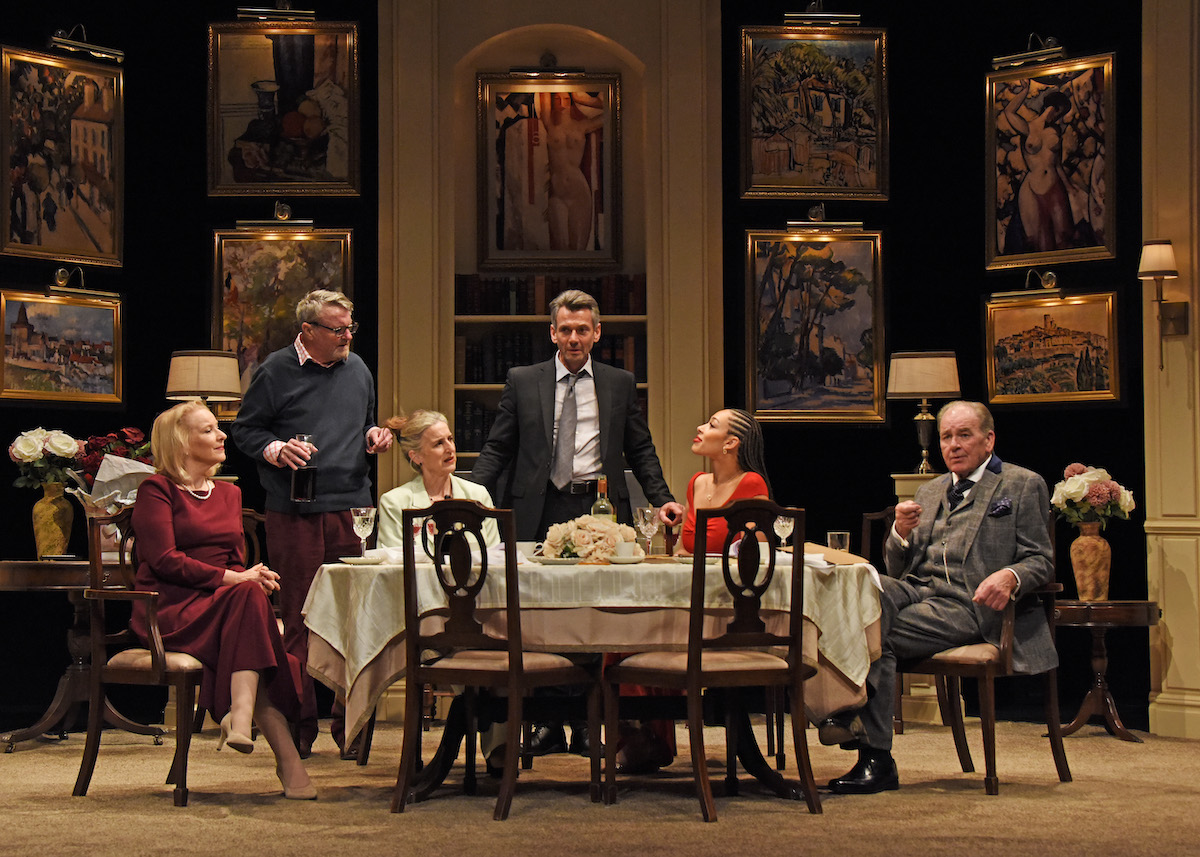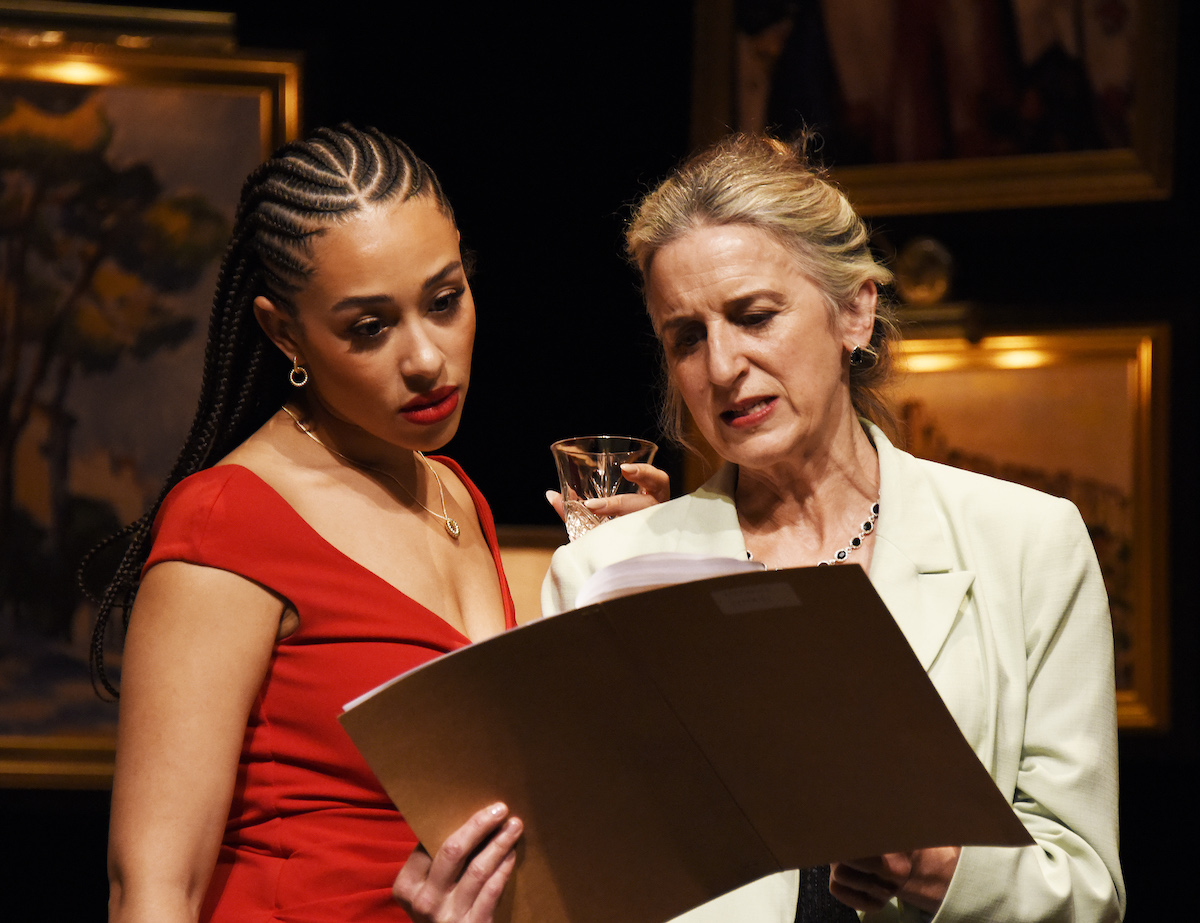- Monday, June 09, 2025
- Stay Connected
 Abraham Lincoln
If given the truth, the people can be depended upon to meet any national crisis...
Abraham Lincoln
If given the truth, the people can be depended upon to meet any national crisis...
 Guildford news...
for Guildford people, brought to you by Guildford reporters - Guildford's own news service
Guildford news...
for Guildford people, brought to you by Guildford reporters - Guildford's own news service
Dragon Review: Rebus – A Game Called Malice – Yvonne Arnaud Theatre
Published on: 20 Nov, 2024
Updated on: 20 Nov, 2024
By Ferenc Hepp
We are in an elegant Edinburgh mansion and the stage is set for a sophisticated dinner party amongst affluent friends, hosted by Paul and Harriet Goodwin (Neil McKinven and Teresa Banham).
While the premise teases the excitement of a murder mystery game, the play itself offers a more subdued and conversational experience.
The opening dramatic underscoring accompanies the characters emerging from a blackout, setting a tone reminiscent of classic murder mysteries. Yet, this tension dissipates as the party’s ‘Cluedo- like’ guessing game gives way to a prolonged stretch of ‘small talk’.
Through these conversations, we gain insight into the relationships and personalities of the hosts and their four guests. However, this initial act is marked by a rather slow pace, leaving us waiting for somethings more engaging.
McKinven and Banham’s performances are very believable and grounded, a stark contrast to the more exaggerated characters of Candida Jones (Jade Kennedy) and her much older husband Jack Fleming (Billy Hartman).
Candida, a social media influencer perpetually glued to her phone, and Jack, a casino owner, feel less authentic, a mismatch as a couple and more artificial in their character portrayals.
Gray O’Brien’s portrayal of John Rebus is a highlight. As the enigmatic outsider, Rebus carries the weight of mystery in the evening, prompting questions about his connection to the group and the elusive Brendan.
Abigail Thaw as Stephanie Jeffries, the family lawyer with ties to Rebus, adds another dimension and potential suspect. The occasional moments of controversy during the dinner conversations provide brief sparks of drama but fail to build into anything substantial before the interval.
None of these conflicts are explored in great depth. However, the discovery of a body in an upstairs en suite bathroom at the end of Act One injects much-needed intrigue.
Act Two shifts gears, becoming a more traditional murder mystery with Rebus stepping into the investigator role reminiscent of Miss Marple.
The faster pace and mounting revelations hold our attention more effectively. Secrets are unearthed, relationships are tested, and uncomfortable truths come to light as retired detective John Rebus uses his detective skills.
Despite the improved momentum in the second half, the ultimate resolution feels underwhelming; the reveal, while plausible, is somewhat of an anticlimax.
While this brand new play by Ian Rankin and Simon Reade boasts a strong cast and competent direction, its unbalanced pacing and lack of narrative focus in the first act hinder its impact. The production, by Daniel Schumann and Lee Dean in association with Cambridge Arts Theatre, directed by Loveday Ingram, succeeds in presenting an engaging second act but fails to deliver the lasting intrigue expected from a murder mystery.
It was a pleasant evening’s entertainment, but not one that will linger in memory.
Rebus: A Game Called Malice runs until Saturday, November 23, and tickets are available via www.yvonne-arnaud.co.uk or 01483 440000
The fictional detective John Rebus actually made his first appearance in print in 1987, the product of the young English graduate’s imagination as he sat in his Edinburgh bedsit two years earlier.




















Recent Comments